The League Honors President Jimmy Carter With The Mardy Murie Lifetime Achievement Award
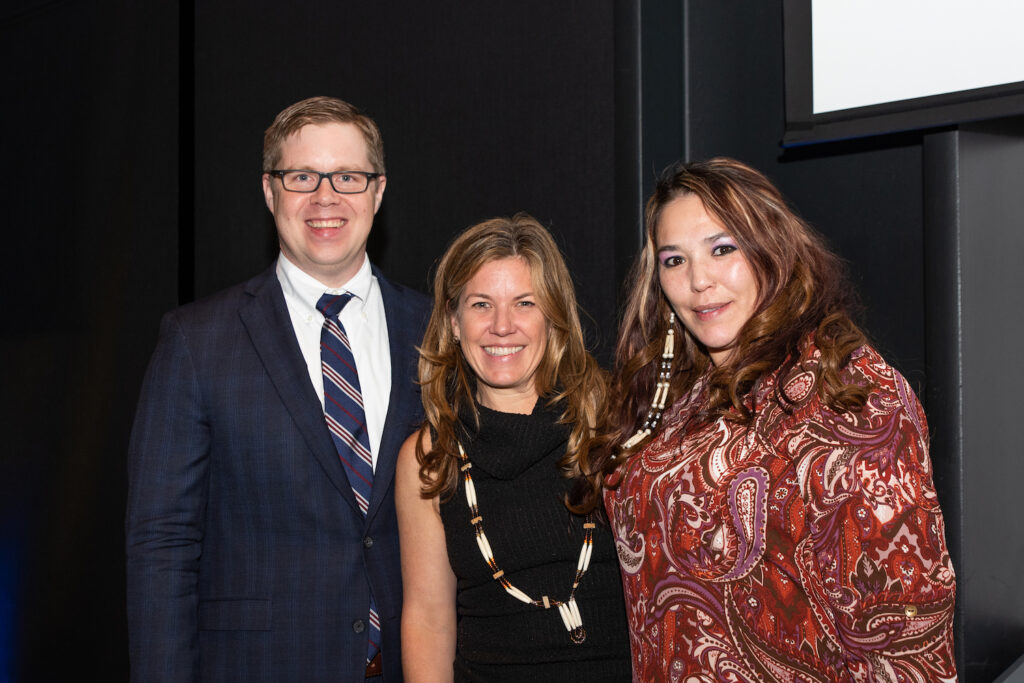
In early November, the League hosted a spectacular event at the Burke Museum Museum of Natural History and Culture in Seattle to honor President Jimmy Carter, announce this year’s recipient of our Adam Kolton Storytelling Grant Award — Bjorn Olson — and celebrate our dedicated board who continues to support the League all year long in our tireless fight to protect America’s Arctic.
We’d like to offer you a taste of the impact of this event, featuring special video coverage, Josh Carter’s poignant speech (Jimmy Carter’s grandson who accepted the award on his behalf), an update from the grant awardee, and so much more.
A special thank you goes out to the supporters who kindly donated to our silent auction. Thanks Earthwell, Grayl, Patagonia, Rodney Strong Vineyards, New Belgium Brewing, Nate Luebbe, Eva’s Wild, Discovery Voyages, Jon Van Zyle, and to our board of directors! And thank you to our photographer, Breanna D. for capturing the evening.
Remarks from Josh Carter
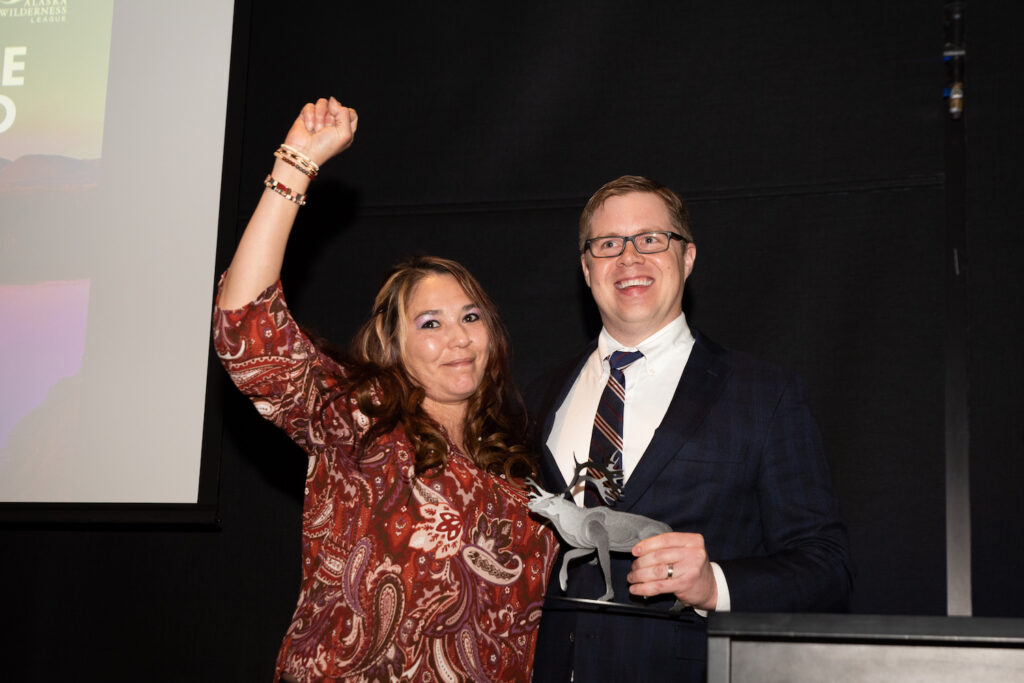
My name is Josh Carter, and I am President Carter’s grandson. I am honored to receive this award on behalf of my grandfather. I went to see him a month ago on his 99th birthday, and I told him I was coming to accept this award on his behalf, and he sends his best wishes.
I am here to accept this award today due to my grandfather’s fearlessness in attacking controversial issues once he became President. When Jimmy Carter became President in 1977, many long-standing national issues remained unresolved. For example, the United States had not formed a treaty to deal with the ownership of the Panama Canal. The United States had not normalized our relationship with China. We had no energy policy, and we did not champion clean energy. We supported strongmen over democracy in Latin America. And there was no peace between Israel and Egypt. Jimmy Carter was successful in tackling each one of these issues.
But as this room knows probably better than any other, his most controversial domestic achievement was in Alaska. Alaska was admitted as America’s 49th state in January of 1959, just 18 years before my grandfather became President. When Alaska joined the Union, the immediate debate was what to do with Alaska’s vast federal lands. We had promised — and intended to keep the promise — of setting aside land for Indigenous people. Some of the land needed to be deeded to the new state government, and we needed to retain national forests, parks, and wilderness areas. President Eisenhower and his successors avoided the controversy, and Alaska’s commercial fisheries were generating an enormous economic industry. And as you know, by the time Jimmy Carter became President, oil was discovered.
So, to compound the initial set of problems, my grandfather and the United States now had to deal with the contention of the enormous wealth the Alaskan lands could generate. His option to start in congress was closed. Alaska’s two senators, Republican Ted Stevens and Democrat Mike Gravel were both aligned with commercial interests, and due to senate rules, no senator could start a debate about another senator’s state. So without Stevens’ or Gravel’s support, the senate was a non-starter.

Jimmy Carter had the support of environmental groups and Alaska Natives, but hunters, loggers, fishers, the Chambers of Commerce, and oil industries were against him. The odds were so stacked against him that he almost had to give up. But Cecil Andrus, my grandfather’s Secretary of Interior, crafted a way for my grandfather to use the Antiquities Act of 1906 to protect areas of “historic and scientific interest.”
So my grandfather and Andrus poured over maps of Indigenous lands, burial grounds, and wildlife areas and decided that about 56 million acres of Alaskan land could become a National Monument. It could not be touched without direct approval from the Department of Interior. It was a Minnesota-sized bargaining chip and extremely unpopular in Alaska. But it forced the issue. And my grandfather spent the rest of his presidency debating and advocating for a wild Alaska.
Finally, in December of 1980, after he lost re-election, congress passed, and he signed the Alaska National Interest Lands Conservation Act (ANILCA). This act clarified ownership of the remaining lands in Alaska, designated areas for offshore oil exploration, and created the Alaska National Wildlife Refuge, an area bigger than California. This law doubled the size of America’s National Parks, tripled America’s protected Wilderness Areas, and protected 25 free-flowing streams. In the 43 years since its passage, ANILCA has become increasingly more popular, especially in Alaska. Throughout my life, I have heard my grandfather repeatedly champion this law as his most significant domestic achievement of his political life.
Of course, my grandfather didn’t have to choose to take on this fight. There were plenty of unresolved issues in America back then, as today. But as his grandson, I think it was inevitable. My grandfather gravitated toward Alaska. After all, he has been a lifelong outdoorsman.
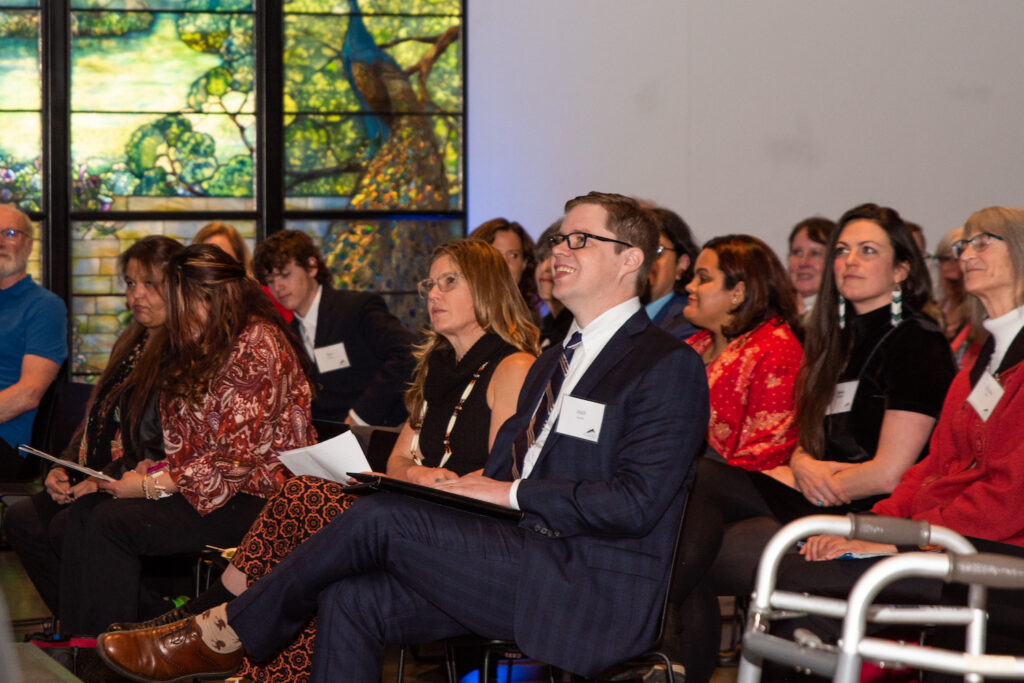
A lot has been written about my grandfather’s pre-presidential life. Famously, he was a peanut farmer-turned-president. He spent his early childhood in the woods of Plains, Georgia; he returned to the same woods after he left the Navy in 1953 and again when he left the White House in 1981. I wasn’t there for any of that — I was born in 1984. But he still lives in the same house in that same small town in South Georgia, and we still own that land. I grew up going down to Plains and walking the same woods and farms our family has owned for more than 100 years now.
Most of my grandfather’s favorite hobbies are outdoors. During turkey season, he would get up an hour before daylight every week, drive to his land, and walk through his woods. It was the only activity he did without any security. My grandfather still has a Secret Service detail that is always with him, but he insisted when he was in his woods, he needed to be alone in nature.
The only outdoor sporting that my grandfather likes better than turkey hunting is fishing. It’s hard to overstate how much my grandfather likes fishing. He has a small pond in his front lawn that he keeps stocked. But if he really wants to go fishing, he goes to his mother’s old house, about five minutes away, to a place we in the family call The Pond House. It’s on Carter Fishpond Road. It was about twice as big as the front lawn pond, but he doubled it when I was in college. Because, you know, you need a bigger pond. And a few years after that, my grandfather decided that he should provide irrigation for one of our farms, so he spent four or five years designing and building his third pond, which is almost four times bigger than the Pond House pond. We call this pond the New Pond. After that, my grandmother told him that if he built another pond, she’d file for divorce.
But despite all these ponds mere minutes from his house, my grandfather’s favorite fishing was fly fishing on trout streams. He learned to fly fish post-presidency, and he has over 50 fly rods and probably as many reels. And he tied his own flies. When you walk into his office in his home in Plains, you see his memorabilia from his time in the Navy as governor of Georgia and president of the United States. But the main feature in his office is his fly-tying desk. When I was about 10, he taught me how to tie an ant and an Adams fly, and made me master them before he took me to Pennsylvania to fish for rainbows.
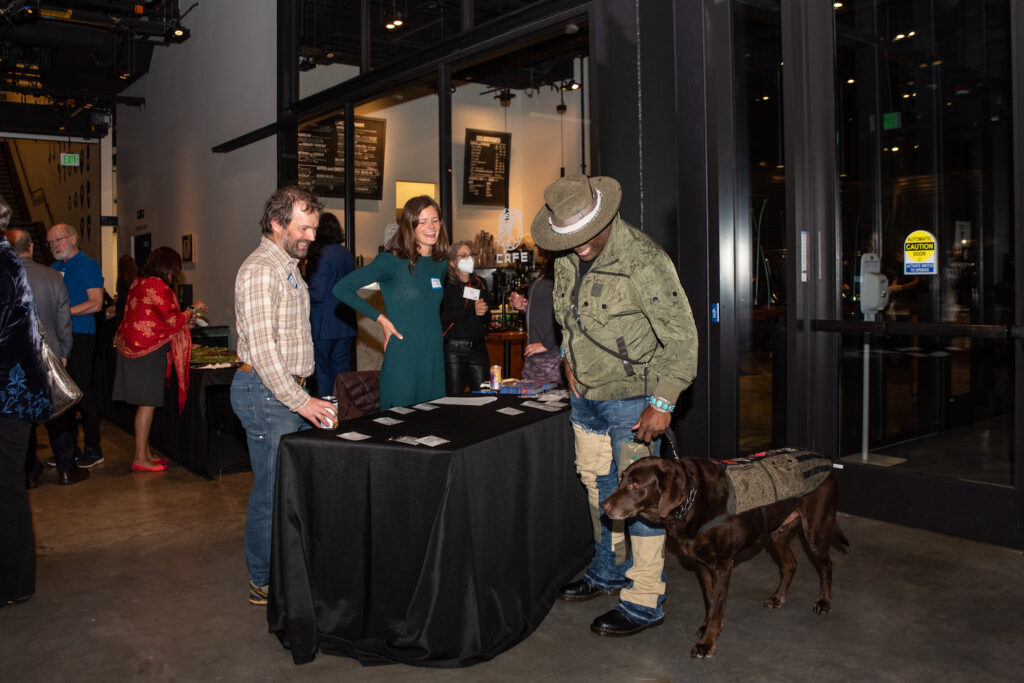
He took me fly fishing in Pennsylvania, Colorado, Florida, Wyoming, and Montana. He took my dad fishing all over the world, including Alaska. I tried to count how often he went fishing in Alaska, but I couldn’t. I know one of his first fishing trips was in Elmendorf while he was President. And he returned to Alaskan trout streams every few years until 2016 when he went to Bristol Bay. My grandparents celebrated their 70th Wedding Anniversary on Copper River, and when he came home, all my grandfather wanted to talk about was catching his 8-pound, 26″ rainbow trout.
But his greatest fishing trip was back in 1985. It was his first trip back to Alaska as a former president. Unlike his previous trips while he was president, he was greeted with smiles and handshakes instead of hanging effigies. He no longer needed to double his security detail in the state. Alaskans were now proud of their National Wildlife Refuge. And on this trip, he was again on Copper River. In his book An Outdoor Journal, my grandfather talks about a catch of a lifetime. He fought for about an hour and landed a 12-pound, 32-inch rainbow trout. It was the largest trout he had ever seen. He measured it, got a lot of pictures of it, and put it back in the water. He sent the pictures and measurements to a Japanese taxidermist who mounted him a replica. He mounted that fish at the entrance of his office, then hand-wrote a note and stuck it on the wall that read, “This Rainbow Still Lives! Caught and released in the Copper River in Alaska in June 1985.”
Alaska is a magical place. I did not have a chance to travel to Alaska with my presidential grandfather, but the last trip I ever took with my maternal grandmother was to Alaska in 1998. I was 14. We spent a week in Anchorage and went on a glacier cruise. Then, we went to Fairbanks to go on a wildlife safari and test out our camping gear. After that, my uncle and I flew north to a town called Umiat. There are no permanent residents in Umiat. At any given time, there are probably no more than 20 or 30 people in this little town. This town is really just an airstrip with pilots ready to take 14-year-old explorers, their uncle, their inflatable rafts, and their tents north even still to the Killik River — a latitude between the 69th and 70th parallel, for an adventure of a lifetime.
We went for the wildlife, but we didn’t see anything. We rafted down the river, sang songs to keep us alert, and kept our binoculars trained on the unbelievable landscape. The views were incredible. The tundra, the permafrost, was nothing I had ever experienced. We would raft a day and camp, then raft another day and camp. Time didn’t matter at all. We were well north of the Arctic Circle, so the sun never went down. It was never dark.
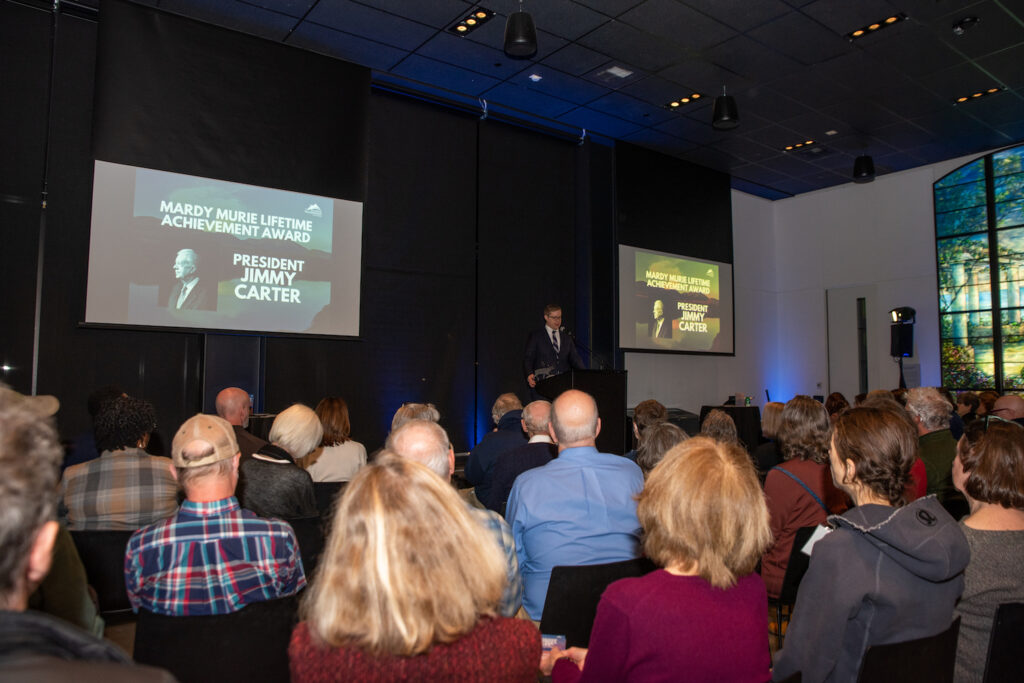
On the last day of the trip, we hit some rapids that would have been a lot of fun. But we didn’t expect rapids. We stopped, got out our maps, and realized we had missed our turn-off for our rendevous about 5 miles upstream. We had no choice but to hike 13 hours alone over the hills and across the permafrost to the pond that served as our runway for our pilot. We started to march. I was mad. I was upset. I was worried. I had never been more exhausted. I found reserves that I didn’t know that I had. But about 10 hours into my hike. Around 2 or 3 in the morning, I came up a crest and looked across the tundra to my right and saw thousands and thousands and thousands of caribou starting their migration away from the north shores south before the freeze. I forgot about my exhaustion, stopped, and experienced nature in a way I never had before, and I haven’t since. I understood my grandfather’s awe of nature.
That’s the kind of feeling that stays with you. That’s the kind of memory that stays fresh for 25 years. That’s the kind of experience that proves that Alaska needs to remain protected.
On behalf of my grandfather, I thank you for this award. But also on behalf of my grandfather, I thank you for the incredible work that you do in keeping Alaska wild.
